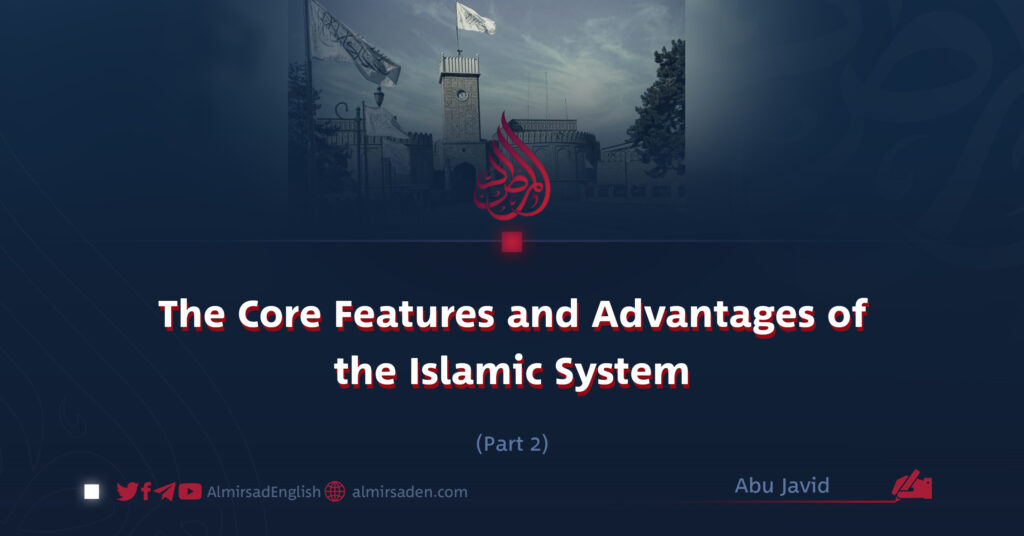Part 2
Written by: Abu Javid
Continuing with the advantages of the Islamic system, the following benefits are presented:
3. The Islamic System as a Flawless Social Framework
The Islamic system stands out as a flawless framework for human social life. It is unique in its exemption from flaws and errors as it is ordained by the Almighty Lord rather than being a product of human intellect, which is susceptible to mistakes.
Hence, the Islamic system possesses the adaptability to be implemented across all eras. In contrast, man-made systems may cater to the requirements of the contemporary period and prove viable for a specific duration, yet they often falter in meeting the needs of future generations. This limitation emanates from the inherent inability of human intellect to fully grasp or foresee upcoming necessities.
Furthermore, laws formulated according to the demands of a particular region may be suitable within that locale but frequently prove unsuitable for other regions with distinct circumstances. However, the Islamic system exhibits the exceptional capability for universal application across all regions and epochs. Numerous Quranic verses substantiate this concept, including:
The Almighty Lord states:
{وَمَا هُوَ إِلَّا ذِكْرٌ لِلْعَالَمِينَ} [القلم: 52]
Translation: “But it is nothing else than a Reminder to all the ‘worlds.”
Additionally:
{وَمَا أَرْسَلْنَاكَ إِلَّا رَحْمَةً لِلْعَالَمِينَ} [الأنبياء: 107]
Translation: “And We have not sent you, [O Muhammad], except as a mercy to the worlds.”
Since the Islamic system emanates from the Quran, and the Quran is a universal book, the Islamic system naturally has the capacity for global application. This feature includes additional benefits, such as the following:
a. Freedom from Contradictions:
Systems based on the comprehensive and inclusive laws of the Almighty Lord (Islam) are free from contradictions. In contrast, systems based on individual opinions (e.g., Ahmed’s, Mahmood’s) lack this feature, as each person naturally has a different perspective. Regarding this, the Almighty says:
{وَلَوْ كَانَ مِنْ عِندِ غَيْرِ اللَّهِ لَوَجَدُواْ فِيهِ اخْتِلَافًا كَثِيرًا} [النساء: 82]
Translation: If it had been from [any] other than Allah, they would have found within it much contradiction.
b. Elimination of Discrimination
Human-made systems often embody symbols of discrimination. One of their major flaws is treating individuals differently based on factors such as race, class, or status. For example, they may treat one person (e.g., Hamid) in one way and another person (e.g., Mahmoud) differently. Similarly, there may be different standards for black individuals compared to white individuals. In contrast, the law of the Almighty is impartial and provides equal treatment for everyone.
c. Liberation from Human Oppression
By nature, humans desire that someone submits to them and offers complete devotion. However, Islamic systems liberate humans from servitude to other humans. No ruler is permitted to receive such reverence that it instills a sense of divinity in their heart—God forbid! (In simple terms, there is no Pharaoh-like behavior in Islamic systems.)
Every Muslim retains the right to counsel a leader should they deviate from the principles of Shariah, as emphasized by the Prophet Muhammad (peace be upon him) who remarked:
“مَن وَلِيَ مِنْكُمْ عَمَلًا ، فَأَرَادَ اللَّهُ بِهِ خَيْرًا ، جَعَلَ لَهُ وَزِيرًا صَالِحًا ، إِنْ نَسِيَ ذَكَّرَهُ ، وَإِنْ ذَكَرَ أَعَانَهُ”
Translation: “Whoever among you is granted a position of authority. If Allah wills good for him. He will give him a righteous minister who will remind him if he forgets and help him if he remembers.”
Similarly, when Ali (may Allah be pleased with him) became the Caliph, he stated in his first sermon:
“فافزعوا إلى قوام دينكم، وإتمام صلاتكم، وأداء زكاتكم، والنصيحة لإمامكم…”
Translation: “Commit yourselves to upholding your religion, perform your prayers, pay your zakat, and offer sincere advice to your leader.”
Nonetheless, the act of advising a ruler necessitates certain etiquettes to ensure efficacy and adherence to Sharia principles. One pivotal etiquette involves delivering advice in private. The Prophet Muhammad (peace be upon him) stipulated:
“مَن أراد أن ينصحَ لسلطانٍ بأمرٍ فلا يُبدِ له علانيةً، ولكن ليأخذْ بيدِه فيخلوَ به، فإن قَبِلَ منه فذاك، وإلاَّ كان قد أدَّى الذي عليه له.”
Translation: “Whoever wishes to advise a ruler about a matter should not do so publicly. Instead, he should take him by the hand and speak to him privately. If he accepts the advice, then it is well; if not, he has fulfilled his duty.”
